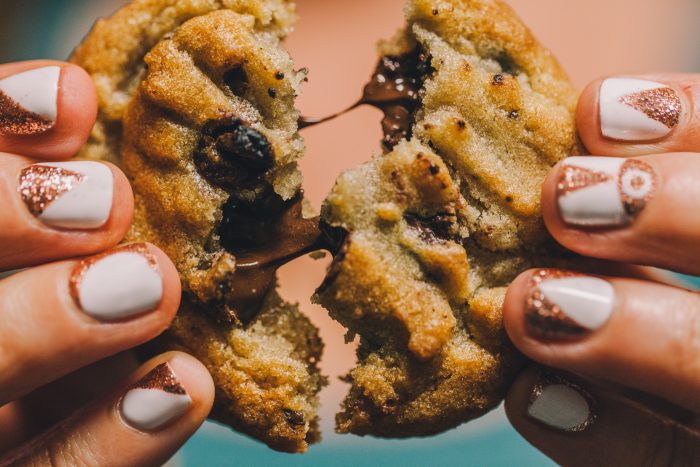This article is offered in partnership with Noom. They’re dedicated to making healthy living easier for us all, and we’re honored to work with them. ~ ed.
People are suckers for tests. It’s human nature.
Not the kind we had to write at school. I’m talking about those online tests that tell us something about ourselves.
What’s my Enneagram Type? Am I an Old Soul? What Does my Favorite Color Say about my Personality?
Sure, some are just fun and silly, but others are bonafide psychology-based tools that can give us the self-insight we need to heal and grow.
We have to know where we are in order to start where we are, to paraphrase Pema Chodron.
Using these kinds of psychology and mindfulness principles to help people lose weight and feel healthier might seem like a contradiction in terms, but that’s exactly what Noom does.
That’s exactly what makes it not a diet. And that’s exactly why it works where diets fail.
You never need to go on another diet again>>
Though I haven’t used it myself, I’ve been following along over the past few weeks as my husband, David, gives it a go.
So, before you get sucked into the “New Year, New You” fad dieting madness (please don’t), here’s a sneak peek into Noom’s science-backed approach.
How Psychology can Help you Get Healthy, For Good.
If we want to change something, we have to start where everything starts: in our minds.
Our minds create our thoughts which fuel our beliefs which drive our actions and become the habits and behaviors that direct our lives.
The problem with diets is they don’t address the roots of our often unhealthy relationship with food. Nor do they give us any of the skills we need to get to a healthier place without punishing, shaming, or depriving ourselves. Usually all three at once.
Meanwhile, our unconscious eating habits, limiting beliefs, and confusion around food persists.
Stop dieting. Get life-long results with Noom >>
As someone who has never bought into diet culture and always been skeptical of anything that seems vaguely like a diet, it’s been interesting for me to see how Noom addresses the underlying psychology around our food and body issues that diets ignore.
View this post on Instagram
It’s been pretty cool to see how much David’s learned about himself and his relationship with food in a relatively short time. He “loves food” as he puts it, and though he’s fairly fit and healthy, he has struggled to overcome the waistline spread that affects many of us as we get older.
As far as I can tell, there are 5 Things that Set Noom Apart.
1. Noom meets you where you are, and where you go is up to you.
The program begins after you take an in-depth quiz based on a series of lifestyle questions. (Yay, test time. Yet another chance to learn more about our mysterious inner workings!)
Take Noom’s 30-second, psychology-based health evaluation >>
Based on your answers, Noom recommends a personal daily calorie budget and you use their simple traffic-light system to categorize and log your meals.
2. You don’t need to avoid certain foods or deprive yourself to get healthy.
Monitoring calories seems pretty old-school. Even the word calories sets off my own inner anti-diet red flags, but calories are just units of energy. I also saw the A-ha! moment my husband had when he realized just how much energy he was putting into his body compared to what he was actually using.
Noom supports this daily food tracking protocol with interactive education about food and nutrition, including the fact that not all calories are created equal. Their huge database of food products also makes the tracking quick and dead-easy.
And the traffic-light system means that you can still enjoy the foods you love, but the app gives you guidance around how much of each different category of foods you should reasonably be enjoying, depending on the goals you’ve set for yourself.
3. It’s not all about weight. It’s about something bigger.
Though weighing yourself is part of Noom’s model, it really does seem to focus more on all-round health. It gives you “credit” for the educational modules you complete, and these are fun and genuinely helpful. They incorporate affirmations to build up your confidence and self-belief, creative visualization to help you get clear and focus on your goals, and breathing exercises to help you de-stress.
Start reprogramming your beliefs about yourself & food >>
Weight is an undeniable factor when it comes to overall health. But it’s not the only factor. Noom gives equal attention to your mental well-being, stress levels, and understanding your own triggers behind the unhealthy eating habits that can lead to weight gain.
View this post on Instagram
Noom allows you to track your glucose levels and blood pressure. It also has an in-built pedometer that encourages healthy levels of movement each day and you can manually add any exercise you do on top of that, which the algorithm factors into your progress.
Another thing David seems to be enjoying is that Noom makes you feel like you’re a part of something bigger. There’s an active online community, and you are connected to live coaches who can offer you one-on-one health coaching during business hours.
4. Noom can help manage or even prevent chronic illness.
Unlike the weight loss plan, the diabetes Noom plan is also designed to help people living with both type 1 and type 2 diabetes and may help prevent those who are at risk from becoming pre-diabetic (it’s even recognized by the Centers for Disease Control and Prevention).
If you do have any underlying conditions, though, speak to your doctor before you try Noom because the app can’t factor in things like insulin resistance, thyroid problems, or hormone imbalances that might impact your ability to shed weight.
5. Being thinner doesn’t make us healthier, fixing our relationship with food does.
Your healthiest self is not any predetermined size, shape, or weight. It’s important to bear that in mind. But, let’s face it, if our weight starts to impact our health or our ability to do the things we want to do, then we have a decision to make: change for the better or live with the consequences.
And it’s a damn sight healthier to make the kind of sustainable, psychology-backed change that Noom offers than go on yet another diet only to find yourself back where you started come February.
Find out what’s possible if you start today >>
Seasoned Noomers Speak for Themselves:
View this post on Instagram
View this post on Instagram
View this post on Instagram
 Share on bsky
Share on bsky


Read 6 comments and reply